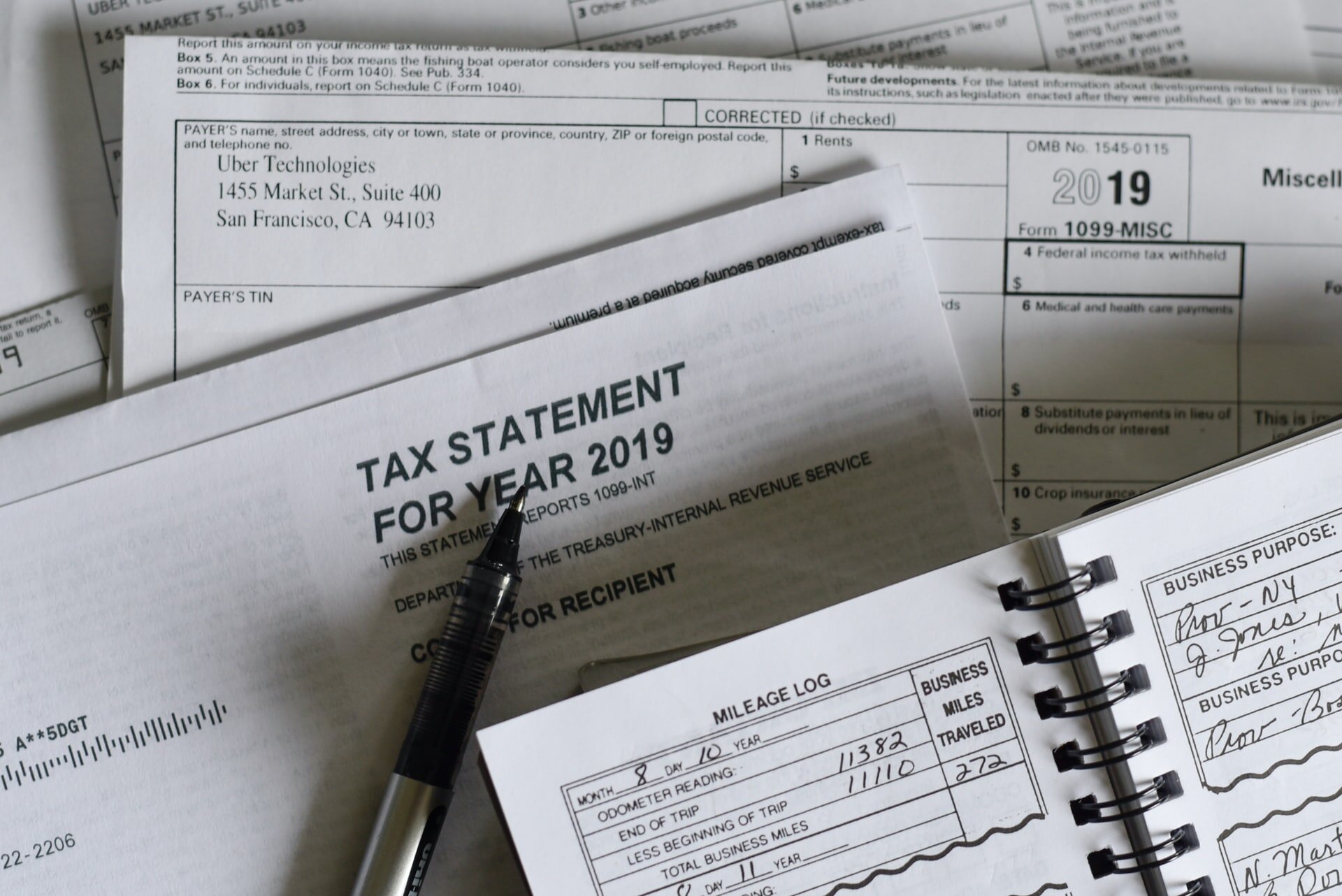

Finance
How To Respond To A Pension Buyout Offer
Published: November 27, 2023
Learn how to handle a pension buyout offer in the finance industry. Gain insights on how to respond effectively and make informed decisions for your financial future.
(Many of the links in this article redirect to a specific reviewed product. Your purchase of these products through affiliate links helps to generate commission for LiveWell, at no extra cost. Learn more)
Table of Contents
- Introduction
- Understanding Pension Buyout Offers
- Weighing the Pros and Cons of a Pension Buyout Offer
- Evaluating Your Financial Situation
- Assessing the Solvency of the Pension Plan
- Considering Long-Term Financial Goals
- Reviewing the Terms and Conditions of the Buyout Offer
- Seeking Professional Advice and Consultation
- Making a Decision: Accepting or Declining the Buyout Offer
- Managing the Buyout Proceeds
- Conclusion
Introduction
Welcome to our comprehensive guide on how to respond to a pension buyout offer. If you’re one of the countless individuals who have been offered a pension buyout, you may find yourself faced with a difficult decision. A pension buyout offer is when your employer offers you a lump sum of money in exchange for giving up your future pension payments. While it may sound tempting to receive a large sum of money upfront, it’s essential to carefully consider all the implications before making a decision.
In this article, we will explore the various factors you should consider when responding to a pension buyout offer. We’ll discuss the pros and cons of accepting such an offer and delve into the financial and personal considerations that should guide your decision-making process. It’s important to note that everyone’s situation is unique, so the decision to accept or decline a buyout offer should be based on your individual circumstances.
By understanding the ins and outs of pension buyout offers and obtaining the necessary information, you’ll be better equipped to navigate this potentially life-changing decision. So let’s dive in and explore how you can evaluate a pension buyout offer and determine the best course of action for securing your financial future.
Understanding Pension Buyout Offers
Before deciding whether to accept or decline a pension buyout offer, it’s essential to have a clear understanding of what it entails. A pension buyout offer is when an employer offers a lump sum payment in exchange for relinquishing your future pension benefits. This means that instead of receiving regular pension payments over your retirement years, you would receive a one-time lump sum amount.
It’s important to note that pension buyout offers typically apply to defined benefit pension plans. Defined benefit plans are employer-sponsored retirement plans that guarantee a specific amount of income during retirement based on factors such as years of service and salary history. In recent years, many companies have sought to reduce their pension liabilities by offering buyout options to plan participants.
Accepting a pension buyout offer means that you will no longer receive the monthly pension payments that were promised to you by your employer. Instead, you would have access to a large sum of money upfront, which you can invest or use to fund your retirement in a different way. This can be an attractive prospect for individuals who are looking for more control over their retirement funds or have concerns about the solvency of their employer’s pension plan.
However, it’s important to carefully consider the implications of a pension buyout offer. While a lump sum payout can provide immediate financial flexibility, it also means taking on the responsibility of managing and growing your retirement funds. There’s always the risk of outliving your lump sum or making poor investment decisions, which could potentially leave you financially vulnerable in the future.
Additionally, accepting a buyout offer means giving up the security of a guaranteed monthly pension payment for life. With pension payments, you can rely on a steady stream of income throughout your retirement years, regardless of market conditions. If you choose to accept a buyout, you bear the risk of managing your funds and ensuring they last for the duration of your retirement.
Now that we have a basic understanding of what a pension buyout offer entails, let’s move on to the next section, where we’ll discuss the pros and cons of accepting such an offer.
Weighing the Pros and Cons of a Pension Buyout Offer
When considering a pension buyout offer, it’s crucial to carefully evaluate the potential advantages and disadvantages. This section will explore the pros and cons of accepting such an offer, allowing you to make an informed decision about your financial future.
Pros
- Immediate Access to Funds: One of the main benefits of accepting a pension buyout offer is gaining immediate access to a significant lump sum of money. This can provide financial flexibility and the ability to invest or use the funds as needed.
- Greater Control and Flexibility: By accepting a buyout, you have more control over how your retirement funds are invested and managed. You can choose investment strategies that align with your goals and risk tolerance.
- Protection Against Pension Plan Insolvency: If you have concerns about the financial stability of your employer’s pension plan, accepting a buyout can help protect you from potential future problems. This way, you aren’t reliant on the solvency of the pension plan to receive your retirement income.
- Transfer of Wealth: Accepting a buyout offer allows you to potentially transfer any remaining funds to your beneficiaries upon your passing. This can be a valuable estate planning tool, especially if you have specific goals for leaving a legacy.
- Opportunity for Higher Returns: Taking control of your retirement funds through a buyout can provide the opportunity for potentially higher investment returns, especially if you have confidence in your investment skills or work with a trusted financial advisor.
Cons
- Loss of Guaranteed Income: By accepting a pension buyout, you forfeit the security of a guaranteed monthly pension payment for life. Depending on your financial situation and longevity, you run the risk of outliving your lump sum or facing market fluctuations that may impact the sustainability of your retirement funds.
- Investment Risk: Managing your retirement funds requires knowledge, expertise, and ongoing monitoring. If you’re not comfortable with investment decisions or lack the time and interest to stay updated, you may be at risk of making poor investment choices or falling prey to fraudulent schemes.
- Inflation and Market Uncertainty: In retirement, keeping pace with inflation is crucial to maintain your purchasing power. If you do not carefully manage your funds or experience a downturn in the market, your lump sum may not be sufficient to sustain your desired lifestyle throughout retirement.
- Healthcare and Long-Term Care Costs: As you age, healthcare expenses and long-term care costs can significantly impact your retirement budget. It’s important to consider the potential expenses and have a plan for covering these costs if you accept a pension buyout.
By taking the time to weigh the pros and cons, you’ll be better equipped to assess whether accepting a pension buyout offer aligns with your financial goals and risk tolerance. In the next section, we’ll delve into evaluating your financial situation to further inform your decision-making process.
Evaluating Your Financial Situation
When faced with a pension buyout offer, it’s crucial to evaluate your current financial situation and assess how accepting the offer may impact your long-term financial well-being. This section will guide you through the key factors to consider when evaluating your financial circumstances.
Existing Retirement Savings:
Consider the amount of retirement savings you currently have outside of your pension plan. If you have substantial savings or other retirement accounts, accepting a buyout may provide an opportunity to consolidate and have more control over your investments. On the other hand, if your pension is the primary source of your retirement income, giving up the guaranteed payments may not be wise unless you have alternative income sources.
Projected Retirement Expenses:
Take the time to estimate your anticipated retirement expenses. Consider factors such as housing costs, healthcare expenses, travel, and everyday living expenses. This assessment will help you determine if the lump sum from a buyout is sufficient to cover your projected needs and if you’re comfortable taking on the responsibility of managing your retirement funds.
Longevity and Life Expectancy:
It’s important to realistically assess your life expectancy. While none of us can predict exact lifespans, considering your overall health, family history, and lifestyle choices can give you a rough estimate. If you anticipate a longer lifespan, ongoing pension payments may provide a more secure income stream, whereas a shorter life expectancy may make a buyout more appealing.
Personal Risk Tolerance:
Assess your comfort level with investment risk. If you feel confident in managing your funds, have experience with investing, or are willing to work closely with a financial advisor, accepting a buyout may provide opportunities for potentially higher investment returns. However, if you have a lower risk tolerance or prefer the security of a guaranteed income, sticking with the pension payments may be a safer option.
Legacy and Estate Planning:
If leaving a substantial inheritance or providing for your loved ones is a priority, consider how a buyout may impact your ability to transfer wealth. With pension payments, you can typically name a survivor or beneficiary to receive a portion of your pension after your passing. If maintaining this feature is important to you, accepting a buyout may not align with your estate planning goals.
Ultimately, evaluating your financial situation involves a careful examination of your retirement savings, projected expenses, life expectancy, risk tolerance, and legacy goals. By considering these factors, you can determine if accepting a pension buyout offer is a viable option for preserving and growing your nest egg. In the next section, we will explore how to assess the solvency of your pension plan to further inform your decision-making process.
Assessing the Solvency of the Pension Plan
Understanding the financial health and solvency of your employer’s pension plan is crucial when considering a buyout offer. Assessing the plan’s stability and funding status will help you gauge the level of risk associated with sticking with the pension payments versus accepting the buyout. In this section, we’ll explore key factors to consider when assessing the solvency of the pension plan.
Funding Ratio:
The funding ratio of a pension plan measures the plan’s assets compared to its liabilities. It indicates the plan’s ability to meet its obligations to current and future retirees. A funding ratio of 100% or higher indicates the plan has enough assets to cover its liabilities, while a ratio below 100% suggests a shortfall. Review the funded status of your pension plan to determine if it is adequately funded or if there are potential concerns about future payments.
Employer’s Financial Health:
Take into account the financial stability of your employer. If your employer is experiencing financial difficulties, such as bankruptcy or a decline in revenue, it may impact their ability to fund the pension plan adequately. Keep an eye on company news, financial statements, and any public information that might shed light on the employer’s financial standing.
Pension Protection Guaranty Corporation (PGGC) Coverage:
The Pension Benefit Guaranty Corporation (PBGC) is a federal agency that insures private defined benefit pension plans. If your pension plan is terminated and it does not have sufficient funds to cover its obligations, the PBGC steps in to provide limited protection. Familiarize yourself with the PBGC coverage limits and understand the level of protection it offers in the event your pension plan faces financial challenges.
Historical Pension Plan Performance:
Research the historical performance of the pension plan. Review the plan’s investment returns, funding history, and any changes made to the plan in the past. Understanding how the plan has performed over time can provide insights into its stability and ability to meet its future obligations.
Professional Actuarial Evaluation:
Consider seeking the expertise of a professional actuary to evaluate the financial health of the pension plan. An actuarial analysis will provide an in-depth assessment of the plan’s solvency and the likelihood of its ability to fulfill future obligations. An actuary can analyze the plan’s funding level, investment strategy, mortality assumptions, and other factors to help you make a more informed decision.
By assessing the solvency of the pension plan, you can evaluate the level of risk associated with relying on pension payments versus accepting a buyout offer. Understanding the financial health of the plan and the stability of your employer will help you make a more informed decision about the buyout offer. In the next section, we will discuss how to consider your long-term financial goals when evaluating a pension buyout offer.
Considering Long-Term Financial Goals
When deciding whether to accept or decline a pension buyout offer, it’s important to align your decision with your long-term financial goals. Taking a holistic approach to evaluating the buyout offer will help ensure that it aligns with your overall financial plan. In this section, we will explore key factors to consider when assessing your long-term financial goals.
Risk Tolerance and Investment Strategy:
Assess your risk tolerance and investment strategy. If you have a higher risk tolerance and feel confident in managing your investments, accepting a buyout offer may provide opportunities for potentially higher investment returns. On the other hand, if you have a lower risk tolerance or prefer a more guaranteed income stream, sticking with the pension payments may be a more suitable option.
Retirement Income Needs and Lifestyle:
Evaluate your retirement income needs and desired lifestyle. Consider your anticipated expenses, including housing costs, healthcare expenses, travel plans, and other lifestyle aspirations. Determine whether the lump sum from the buyout offer, along with your other retirement savings and potential sources of income, can adequately cover your expenses and support your desired retirement lifestyle.
Legacy and Estate Planning:
Consider your legacy and estate planning goals. You may have specific intentions for leaving a financial legacy for your loved ones or supporting charitable causes. Evaluate how accepting a buyout offer may impact your ability to transfer wealth or achieve your philanthropic objectives.
Social Security and Other Retirement Benefits:
Take into account other retirement benefits, including Social Security. Consider how accepting a buyout offer may impact your eligibility for Social Security benefits and other retirement income streams. Evaluate how these benefits contribute to your overall retirement income picture and whether the buyout offer aligns with your income expectations.
Longevity and Healthcare Costs:
Consider your longevity and potential healthcare costs. Assess your overall health, family history, and lifestyle factors to estimate your life expectancy. Additionally, factor in potential healthcare expenses and long-term care costs that may arise during your retirement years. Determine if accepting a buyout offer provides sufficient funds to cover these potential costs throughout your retirement.
By taking into account your risk tolerance, desired lifestyle, legacy goals, other retirement benefits, longevity, and healthcare costs, you can evaluate how accepting a pension buyout offer fits within your long-term financial goals. Understanding the impact of the buyout offer on your overall financial plan will help you make a more informed decision. In the next section, we will delve into the importance of reviewing the terms and conditions of the buyout offer.
Reviewing the Terms and Conditions of the Buyout Offer
Before making a decision on a pension buyout offer, it is crucial to carefully review the terms and conditions of the offer. The terms of the buyout can vary greatly depending on your employer and the specifics of your pension plan. In this section, we will explore the key aspects to consider when reviewing the terms and conditions of the buyout offer.
Lump Sum Amount:
Examine the lump sum amount being offered to you. Evaluate whether the amount is fair and reasonable in relation to the value of your projected pension payments. Consider whether the lump sum is sufficient to meet your financial needs and objectives throughout your retirement years.
Payment Options:
Understand the available payment options for the lump sum offer. Some pension buyout offers may provide various payment options, such as a single lump sum payment, structured payments over a period of time, or a combination of both. Consider which payment option would best align with your financial goals and preferences.
Benefit Guarantees:
Review any benefit guarantees provided by the buyout offer. Some offers may include additional guarantees, such as a minimum return on investment, survivor benefits, or inflation protection. Assess these guarantees and determine if they add value to the buyout offer and align with your long-term financial objectives.
Tax Implications:
Understand the tax implications of accepting the buyout offer. Consult with a tax professional to evaluate the potential tax consequences associated with receiving a lump sum payout versus receiving regular pension payments. Consider how the tax treatment of the buyout offer may impact your overall financial plan.
Legal and Financial Advice:
Consider seeking legal and financial advice before making a decision. Consulting with professionals who specialize in pensions, retirement planning, and tax matters can provide valuable insights and ensure that you fully understand the terms and implications of the buyout offer.
Impact on Other Benefits:
Review how accepting the buyout offer may impact other retirement benefits you receive or are eligible for, such as healthcare coverage or Social Security. Evaluate whether the buyout offer may affect the amount or timing of these benefits and consider how this aligns with your overall financial plan.
By thoroughly reviewing the terms and conditions of the buyout offer, you can assess whether the offer meets your financial needs, aligns with your retirement goals, and provides a fair arrangement given your specific circumstances. Understanding all the details and seeking professional advice will help you make an informed decision. In the next section, we will discuss the importance of seeking professional advice and consultation when considering a pension buyout offer.
Seeking Professional Advice and Consultation
When faced with a pension buyout offer, it is highly recommended to seek professional advice and consultation. Making a decision of this magnitude requires a thorough understanding of your financial situation, the terms of the buyout offer, and the potential long-term impacts on your retirement income. In this section, we will discuss the importance of seeking professional advice and consultation when considering a pension buyout offer.
Financial Advisor:
Consulting with a financial advisor who specializes in retirement planning can provide valuable insights and guidance. They can help you evaluate the financial implications of accepting a buyout offer, assess the long-term impact on your retirement income, and provide strategies for managing the lump sum effectively.
Tax Advisor:
A tax advisor can help you understand the tax implications associated with a pension buyout offer. They can help you evaluate the potential tax consequences of accepting a lump sum payout versus receiving regular pension payments and offer strategies to minimize tax liabilities.
Actuary:
An actuary can provide a detailed analysis of the pension plan’s solvency, including the calculations of future pension payments, the stability of the plan, and the potential risks and benefits associated with a buyout offer. Their expertise can help you make an informed decision based on actuarial principles.
Estate Planning Attorney:
If estate planning and transferring wealth are important considerations, consulting with an estate planning attorney can help you evaluate the impact of a pension buyout offer on your estate plan. They can advise you on strategies to protect and preserve your assets for future generations.
Employee Benefits Specialist:
An employee benefits specialist can provide insights into the specific details of your employer’s pension plan and the implications of accepting a buyout offer. They can help you navigate any complex plan provisions and ensure you fully understand the impact of your decision.
Legal Counsel:
With any significant financial decision, it is advisable to consult with legal counsel who specializes in pensions and retirement planning. They can review the terms of the buyout offer, identify any potential pitfalls, and ensure that your interests are protected throughout the process.
Seeking professional advice and consultation ensures that you have a well-rounded perspective before making a decision on a pension buyout offer. These experts can provide the knowledge, expertise, and insights necessary to make an informed decision that aligns with your financial goals, risk tolerance, and overall retirement plan. In the next section, we will discuss how to make the final decision: accepting or declining the buyout offer.
Making a Decision: Accepting or Declining the Buyout Offer
After carefully evaluating all the factors, including the pros and cons, reviewing the terms and conditions, considering your financial goals, and seeking professional advice, it’s time to make the final decision: whether to accept or decline the pension buyout offer. This decision will have significant implications for your financial future, so it’s essential to approach it with careful consideration. In this section, we will explore some key factors to help you make an informed decision.
Financial Stability and Risk Tolerance:
Consider your financial stability and risk tolerance. If you have a lower risk tolerance and prefer the security of a guaranteed monthly pension payment, declining the buyout offer may be the more suitable option. On the other hand, if you have confidence in your ability to manage your retirement funds and are comfortable taking on investment risk, accepting the buyout offer may align better with your risk tolerance.
Longevity and Financial Sustainability:
Assess your longevity and the potential sustainability of the pension plan. If you have a longer life expectancy and are concerned about the long-term solvency of the plan, accepting the buyout offer may provide greater financial security. Conversely, if you have a shorter life expectancy or have confidence in the stability of the pension plan, continuing with the pension payments may be a safer option.
Overall Financial Plan and Retirement Goals:
Evaluate the buyout offer within the context of your overall financial plan and retirement goals. Consider whether the lump sum payout, along with your other financial resources, will adequately support your desired retirement lifestyle and financial objectives.
Legacy and Estate Planning:
Take into account your legacy and estate planning goals. If leaving a financial legacy or supporting loved ones is a priority, consider how accepting the buyout offer may impact your ability to transfer wealth. Evaluate whether the potential benefits of the buyout offer outweigh the loss of potential pension payments for your beneficiaries.
Professional Advice and Consultation:
Consider the guidance provided by the professionals you consulted, such as financial advisors, tax advisors, or estate planning attorneys. Take their insights and recommendations into account when making your final decision. They can offer valuable perspectives based on their expertise and experience.
Remember, there is no one-size-fits-all answer when it comes to accepting or declining a pension buyout offer. Your decision should be based on a thorough evaluation of your personal circumstances, financial goals, risk tolerance, and professional advice. Keep in mind that this decision is a significant one, and its impact will last throughout your retirement years. Take the time to make an informed choice that best aligns with your unique needs and aspirations.
Once you have made your decision, it’s important to communicate it clearly to your employer, following any required procedures or timelines outlined in the buyout offer. Managing the buyout proceeds and implementing your retirement plan appropriately will be the next steps in this exciting chapter of your financial journey.
Managing the Buyout Proceeds
After accepting a pension buyout offer, effectively managing the lump sum proceeds becomes crucial to ensure long-term financial security. This section will guide you through important considerations and strategies for managing the buyout proceeds.
Create a Financial Plan:
Develop a comprehensive financial plan that outlines your short-term and long-term financial goals. Identify your income needs, expenses, and any other financial obligations. A well-structured financial plan will serve as a roadmap to guide you in managing and allocating the buyout proceeds.
Establish an Emergency Fund:
Set aside a portion of the buyout proceeds as an emergency fund. Aim to save around three to six months’ worth of living expenses in a liquid and easily accessible account. This fund will provide a safety net to cover unexpected expenses and help prevent the need to dip into long-term investments prematurely.
Debt Management:
If you have any outstanding debts, consider using a portion of the buyout proceeds to pay them off or reduce the balance. Prioritize high-interest debts first, such as credit cards or personal loans. Reducing your debt burden can improve your overall financial health and provide more flexibility in managing your ongoing expenses.
Investment Strategy:
Work with a financial advisor to establish an investment strategy that aligns with your risk tolerance, financial goals, and time horizon. Diversify your investments across various asset classes to help manage risk. Regularly review and adjust your investment portfolio to ensure it remains in line with your goals and risk tolerance.
Regular Income Generation:
Consider how to generate a regular income stream from the buyout proceeds. Explore options such as creating a balanced investment portfolio that provides both growth and income, investing in dividend-paying stocks or bonds, or utilizing annuities. Determine the right balance between income generation and potential growth to support your desired lifestyle throughout retirement.
Tax Planning:
Work with a tax advisor to develop a tax-efficient strategy for managing the buyout proceeds. Consider the tax implications of different investment vehicles, distributions, and any potential taxable events. Strategically managing your taxes can help maximize the growth and preservation of your retirement funds.
Regular Monitoring and Reviews:
Regularly monitor your investment performance and review your financial plan to ensure it remains on track. Life circumstances and market conditions change over time, so it’s essential to adapt your strategies as needed. Stay informed about changes in tax laws, economic trends, and investment opportunities that may impact your retirement funds.
Periodic Adjustments:
Periodically reassess your financial plan and make adjustments as necessary. Life events, such as marriage, the birth of a child, or changes in income, may require modifications to your plan. Additionally, as you progress through retirement, your income needs and risk tolerance might evolve, requiring adjustments to your investment portfolio and withdrawal strategy.
By carefully managing the buyout proceeds and following a thoughtful financial plan, you can help ensure the longevity and security of your retirement funds. Regularly review your financial strategies and seek professional advice as needed to make informed decisions and adapt to changing circumstances. This diligent approach will help you navigate the path towards a comfortable and fulfilling retirement.
Conclusion
Deciding whether to accept or decline a pension buyout offer is a significant financial decision that requires careful consideration. Throughout this comprehensive guide, we explored the various aspects you should evaluate when faced with a pension buyout offer. By weighing the pros and cons, evaluating your financial situation, assessing the solvency of the pension plan, considering your long-term financial goals, reviewing the terms and conditions of the buyout offer, and seeking professional advice, you can make an informed decision that aligns with your unique circumstances.
It’s important to remember that there is no one-size-fits-all answer when it comes to pension buyout offers. Each person’s financial situation and retirement goals are different, and the decision ultimately depends on your individual circumstances. Take the time to thoroughly assess your financial needs, risk tolerance, and the potential long-term implications of the buyout offer.
Whether you choose to accept the buyout offer and take control of your retirement funds, or decline the offer and continue receiving the guaranteed pension payments, it’s crucial to have a solid financial plan in place. Create a comprehensive plan that encompasses your income needs, expense management, investment strategies, tax planning, and regular monitoring of your progress.
Remember to review your financial strategies periodically and make adjustments as necessary to adapt to changes in your life circumstances or the ever-evolving economic landscape. Seek professional advice from financial advisors, tax professionals, and other specialists who can provide valuable insights and guidance tailored to your specific needs.
Ultimately, your goal is to achieve financial security, a comfortable retirement, and the ability to meet your long-term goals. By carefully evaluating the buyout offer and managing your retirement funds effectively, you can embark on a fulfilling and secure financial journey throughout your retirement years.














